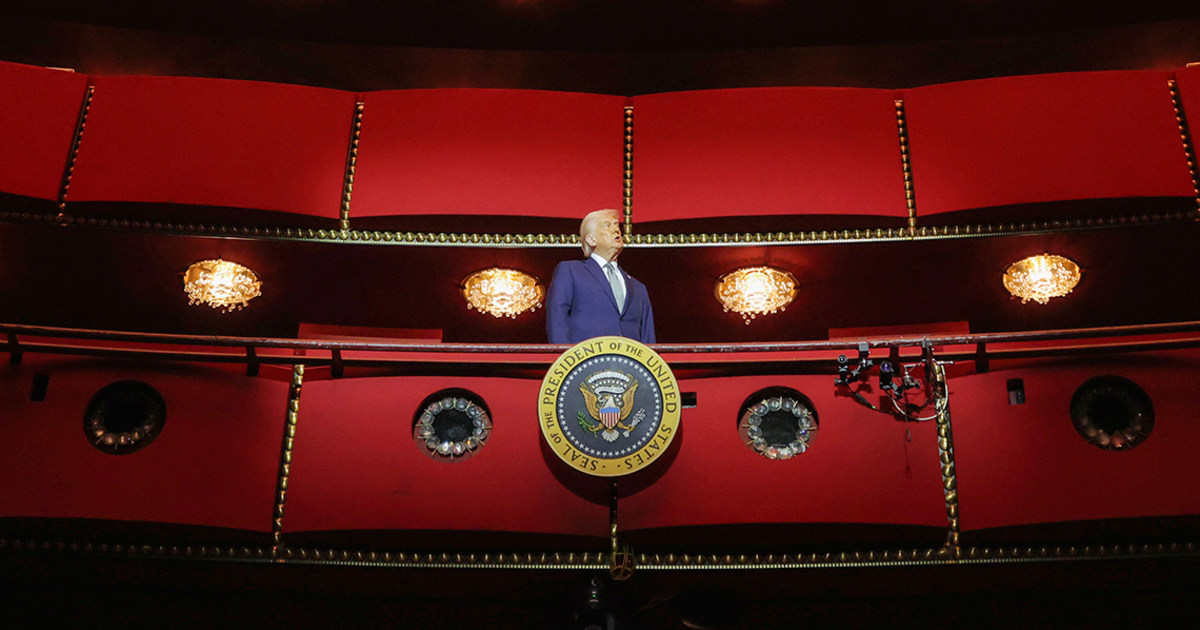The Trump administration’s ‘America First’ policies, characterized by tariffs and a disregard for international alliances, have inadvertently strengthened China’s global position while undermining U.S. interests. Promising to reverse globalization and bring back jobs, Trump’s nationalistic rhetoric masks the reality of ‘de-Americanization.’ International integration continues regardless, and China stands to gain the most.
This article examines how Trump’s trade policies, including withdrawing from the Trans-Pacific Partnership (TPP) and imposing tariffs on countries like Vietnam, have pushed nations toward China’s sphere of influence. It also explores how traditional U.S. allies, such as European countries and Canada, are seeking closer ties with China due to a lack of trust in American leadership. These shifts could lead to a new world order where China becomes the predominant global power.
We will delve into the specific instances where Trump’s actions have backfired, highlighting the long-term consequences of his policies on American trade, security, and international standing. Ultimately, it argues that Trump’s ‘America First’ approach has accelerated the decline of U.S. influence and paved the way for China’s rise.
Trump’s Tariffs Push Vietnam Towards China
Despite Vietnam’s rapid economic growth and concerns about China, the Trump administration imposed a 46% tariff on the country, falsely labeling it ‘reciprocal.’ When Vietnam offered to eliminate its already low tariffs with the U.S., a White House trade advisor dismissed it as meaningless, accusing Vietnam of ‘non-tariff cheating.’
As Nicholas Grossman notes,
‘Trump’s tariffs won’t get Vietnam to trade less. It just won’t trade as much with the U.S. Globalization isn’t stopping — its locus is shifting, and in a way that harms U.S. interests.’
This protectionist move has only served to push Vietnam closer to China, illustrating how Trump’s policies are counterproductive to American interests.
This shift undermines U.S. efforts to maintain influence in the region and allows China to expand its economic and political reach. The situation exemplifies how a focus on short-term gains can lead to long-term strategic losses for the United States.
Withdrawal from TPP Creates Opportunities for China
One of Trump’s first actions was to withdraw the U.S. from the Trans-Pacific Partnership (TPP), a 12-country trade deal excluding China. The TPP aimed to facilitate trade among Pacific Rim countries while containing China’s growing influence. Trump, however, called it a “horrible deal” and promised better bilateral agreements, which never materialized.
A year later, the remaining countries moved forward with the Comprehensive and Progressive Agreement for Trans-Pacific Partnership (CPTPP). The CPTPP is now accepting applications, including one from China. While the outcome is uncertain, Grossman points out,
‘American trade hostility makes individual members likelier to seek the relative stability offered by China, despite the strings attached.’
By abandoning the TPP, Trump removed a critical tool for containing China’s economic expansion. This decision allowed China to step in and potentially dominate trade relations in the Asia-Pacific region.
European Countries Seek Closer Ties with China
China has been actively pursuing closer cooperation with European countries. Despite some hesitations, European trade officials have responded positively to China’s overtures, particularly in light of U.S. tariffs. European Commission President Ursula von der Leyen has emphasized the need for global networks of friendship.
With the Trump administration questioning U.S. commitments to allies’ security, European countries are wary and are increasing their own defense spending. For instance, Poland has signed nearly $50 billion worth of contracts with South Korean companies for military equipment and joint ventures.
‘Trust between countries is valuable. It takes a while to earn and little to destroy, and it is hard to win back.’
The erosion of trust in the U.S. has led European nations to seek stability and economic opportunities elsewhere, including through stronger ties with China.
Canada Considers a Future Beyond U.S. Leadership
Even Canada, a long-time ally of the U.S., is re-evaluating its relationship in response to U.S. tariffs and talk of annexation. Former Bank of England Governor Mark Carney has suggested that Canada’s old relationship with the U.S. is over and advocated for seeking cooperation elsewhere.
In a notable statement, Carney remarked that Canada’s old relationship with the U.S. is “based on deepening integration of our economies and tight security and military cooperation, is over.” Rather than turn inward, he suggested Canada seek cooperation elsewhere.
This sentiment reflects a growing recognition that the U.S. is no longer a reliable partner, prompting Canada to explore alternative alliances and trade relationships, potentially with China.
Rising U.S. Borrowing Costs Signal Declining Trust
The increasing costs of U.S. government borrowing, with U.S. Treasury bond yields rising while stock markets decline, further illustrate the erosion of trust in the U.S. as the world’s premier economic power. Investors are no longer flocking to U.S. bonds as a safe haven.
Grossman notes that,
‘Instead of a rush into dollar-denominated assets, it looks more like capital flight from the U.S.’
As a result, borrowing is currently cheaper for countries like Canada, Germany, and China, indicating a shift in global economic confidence.
This economic shift underscores the long-term consequences of Trump’s policies, potentially leading to a decline in U.S. economic influence and a corresponding rise in China’s.
Conclusion: A World Without American Leadership
The world is heading toward a period of uncertainty without a “rules-based order,” reminiscent of the pre-World War I era. If China rises to become the world’s predominant power, historians may conclude that America relinquished its global leadership rather than China seizing it.
Trump’s ‘America First’ policies have not only failed to weaken China but have also accelerated the decline of U.S. influence by alienating allies and disrupting established trade relationships. The consequences of these actions could reshape the global order, with China poised to take on a more dominant role.
In conclusion, the Trump administration’s trade policies have inadvertently bolstered China’s interests at the expense of our own, setting the stage for a potential shift in global power dynamics. The long-term implications of these decisions will likely be felt for decades to come.

Leave a Reply